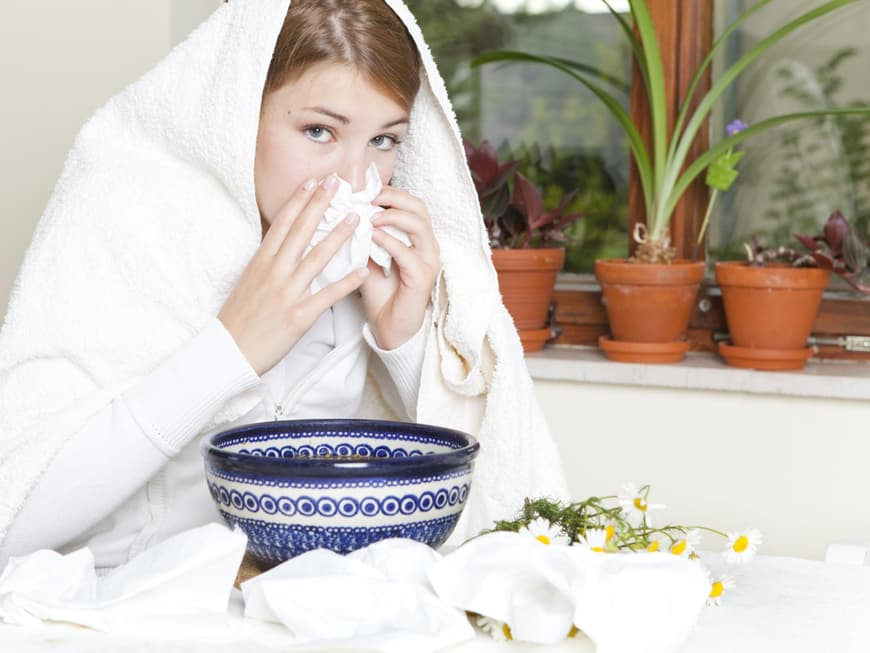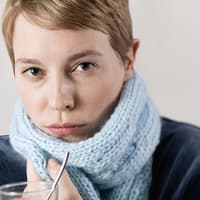
Winter time, cold time. Coughs and colds have us firmly in their grip. And even if the old saying goes that a cold lasts seven days without treatment and a week with treatment, the symptoms can be alleviated with various remedies. We tell you which remedy makes sense where.
Painkillers for coughs and colds
Painkillers (such as ASA, ibuprofen, paracetamol) do not help with coughs and colds, but they can relieve the pain associated with a cold, such as headaches and aching limbs. They also have an antipyretic effect. Paracetamol is best suited for children and adolescents.
Do nasal sprays help against coughs and colds?
Nasal sprays or drops (decongestants) are effective for coughs and colds against a runny or blocked nose and make breathing easier. However, these remedies should not be used for longer than a week - the effect can be the opposite and lead to a persistent cold.
Home remedy for coughs and colds: inhalation
Inhaling steam, especially with additives such as chamomile or peppermint oil, is a tried and tested home remedy for coughs and colds. Warmth and moisture soothe the nasal mucous membranes, at least for a short time.
On the other hand, there is no scientific evidence that drinking a lot helps. However, hot herbal teas do no harm either and are perceived as beneficial. Taking additional amounts of vitamin C for coughs and colds also has no effect on the course of the illness! Nor is there any evidence that vitamin C has a preventive effect. Herbal preparations - such as "Umckaloabo" - are often recommended, but their effect against colds is largely unexplored.
Honey helps against coughs
Honey has been a popular treatment for cold coughs for some time. Studies have shown that eucalyptus and lemon blossom honey in particular provide relief and reduce the intensity and frequency of coughing fits. The antibiotic ingredients of bee honey are cited as the reason for this.
Coughs and colds: can antibiotics help?
Aren't antibiotics effective against everything? No: they only fight bacterial infections, not those caused by viruses. They are therefore powerless against coughs and colds. On the contrary: in one in ten cases, the patient can even expect side effects such as headaches, nausea, vomiting and diarrhea.






